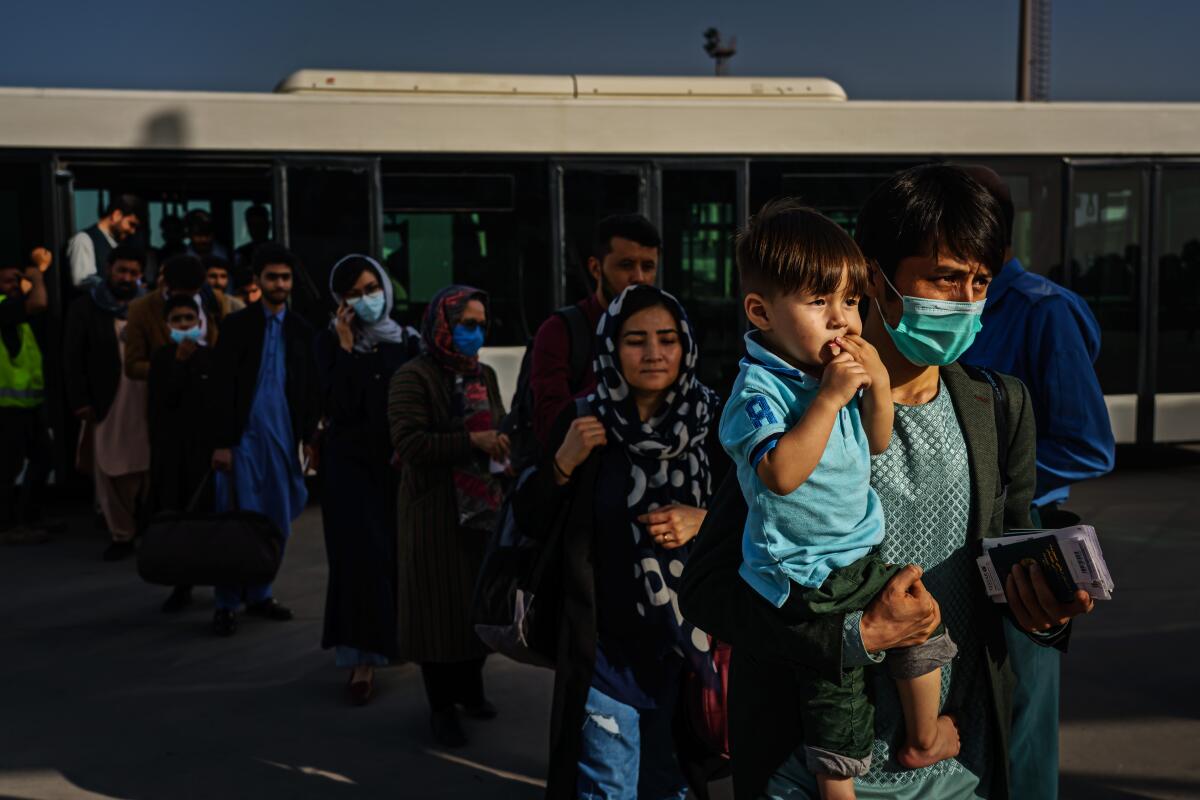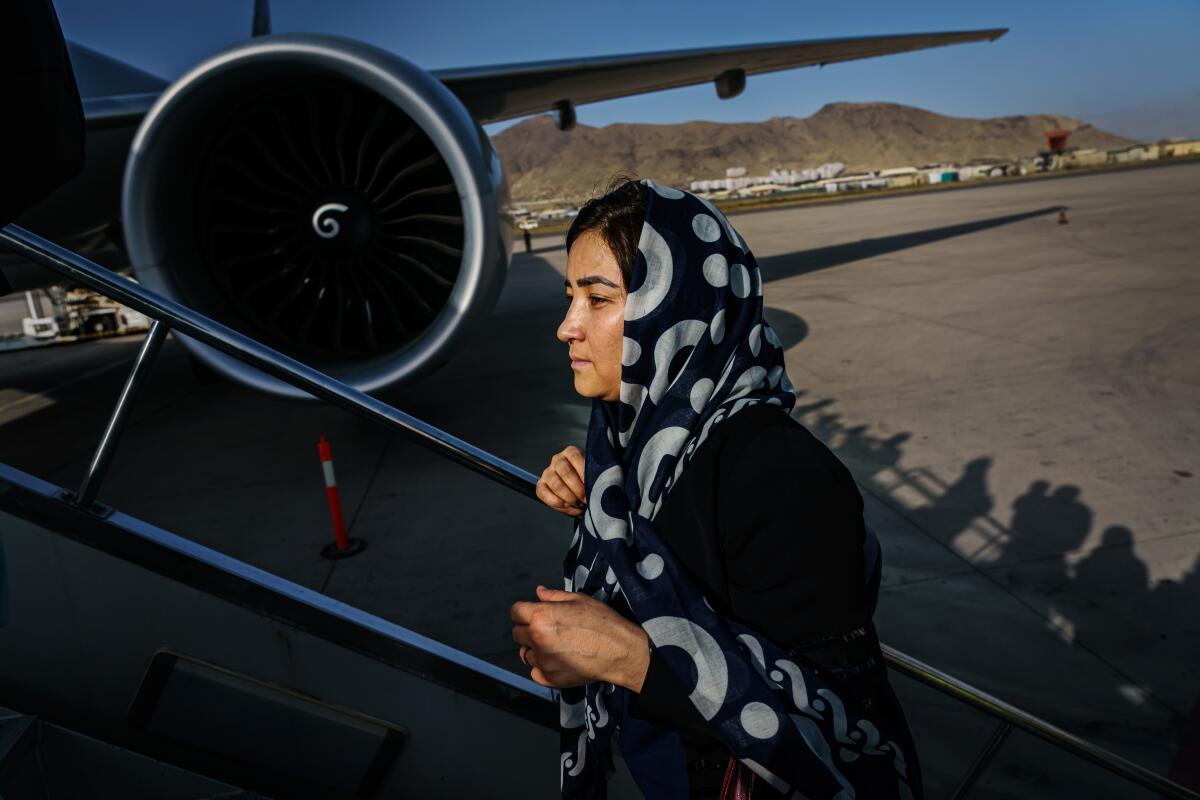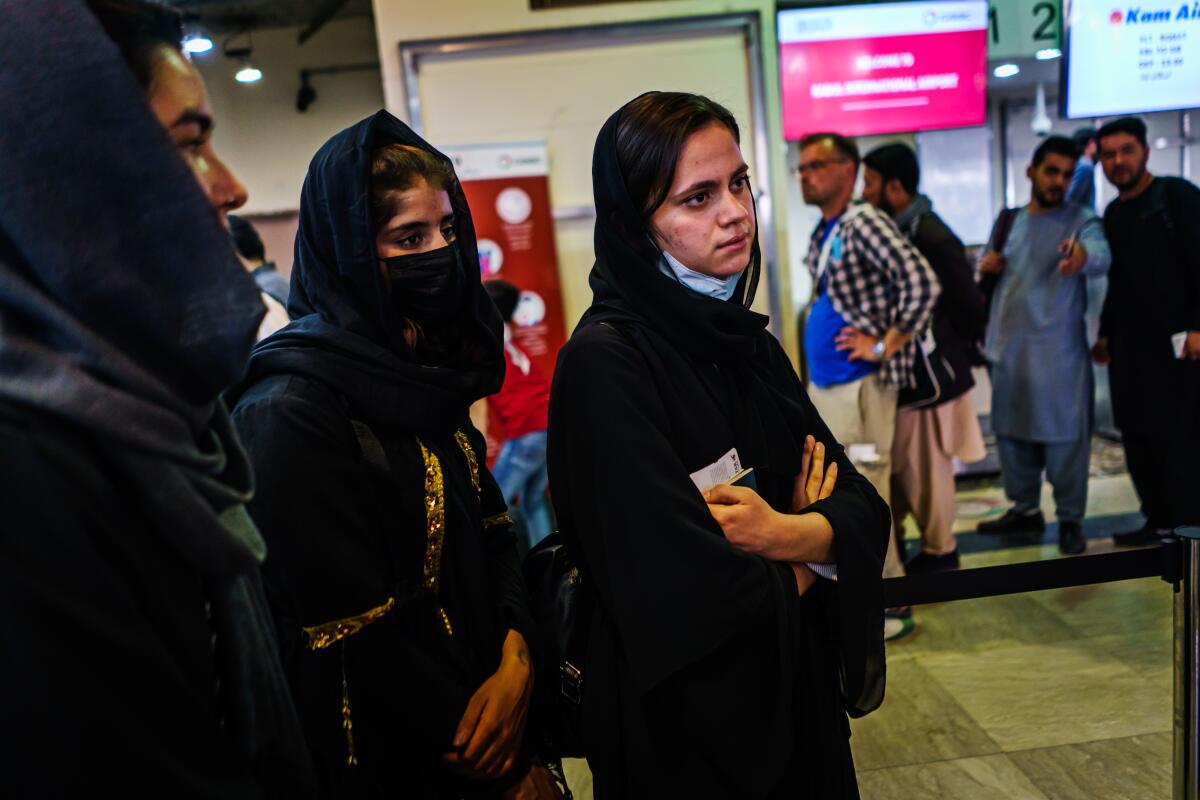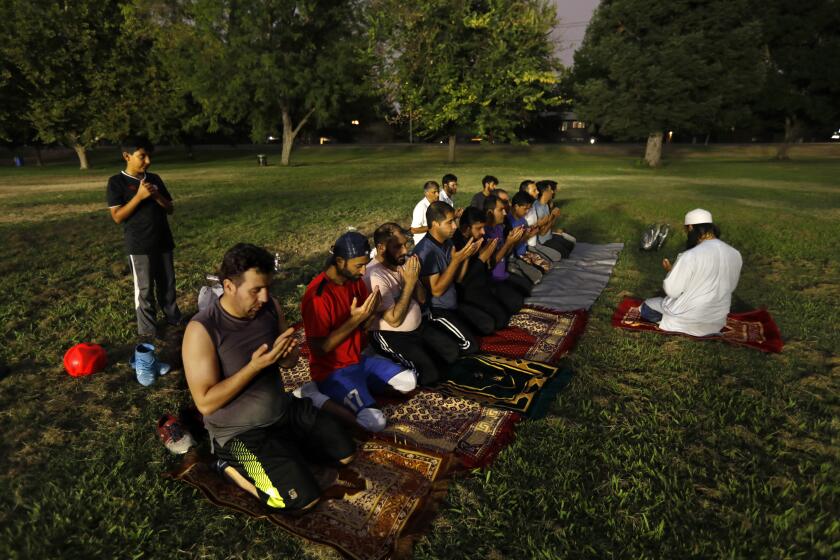Some Afghan refugees now have chance to avoid terrorism designation that blocked path to U.S.

- Share via
Doctors, teachers, engineers and other Afghans who were forced to associate with the Taliban will now have a chance at asylum or visas after the Biden administration loosened a terrorism-related designation on Tuesday, according to government officials and documents reviewed by the Los Angeles Times.
The exemption will be applied on a case by case basis after security vetting and is expected to help Afghans who fled their country after U.S. troops withdrew and the Taliban took over last August, as well as some Afghans who entered the U.S. earlier, said officials from the Department of Homeland Security.

Some can be flagged with the terrorism designation for as little as paying their electricity bill to the Taliban, paying money to get through a Taliban checkpoint or obtaining a passport issued by the Taliban. Others can get the designation for having worked as civil servants under Taliban rule in the 1990s. Among them are Afghan citizens who assisted the U.S. government. They must otherwise be eligible for asylum, refugee or other immigration status.
As part of Operation Allies Welcome, the U.S. has allowed more than 79,000 Afghans to enter the country since last year’s Taliban takeover.
Afghans, “including those who bravely and loyally supported U.S. forces on the ground in Afghanistan at great risk to their safety, should not be denied humanitarian protection and other immigration benefits due to their inescapable proximity to war or their work as civil servants,” said Secretary of Homeland Security Alejandro N. Mayorkas in a statement.
In Los Angeles, a 49-year-old man who came to the U.S. decades ago was denied a green card last year because he had been forced as a student in the late 1980s to help a group associated with the Afghan mujahedin, according to his attorney, Stacy Tolchin.
He distributed fliers and fixed weapons, believing he would be harmed if he did not do so, Tolchin said.
Tolchin hopes her client can now get a green card, along with a chance to bring family members to the U.S.
“I’m going to cry,” she said. “This is morally and politically right.”
U.S. immigration law bars people who are members of a “terrorist organization” or engaged in “terrorism-related” activity from receiving refugee or asylum status.
Immigration advocates and some government officials have long said that the statute was overly broad and could apply to situations not typically thought of as terrorism. Congress has allowed exemptions since 2005, and immigration officials have issued them for other groups.
The exemptions, according to U.S. officials and documents, can apply to those who fought against the Taliban or against the Soviet occupation of Afghanistan from the late 1970s into the early 1990s, those who were employed as civil servants during Taliban rule from 1996 to late 2001 or after August 2021, and those who provided “insignificant or certain limited material support to a designated terrorist organization.”
“Due to the Taliban’s presence and control of entities, roads, and utilities, many individuals who lived in Afghanistan needed to interact with the Taliban in ways that, absent such an exemption, render them inadmissible to the United States under U.S. law,” read a Department of Homeland Security statement.
The policy will not apply to those who targeted U.S. interests or noncombatants, violated human rights, were in high-level positions under the Taliban or supported the Taliban. U.S. officials believe the new exemptions could help those seeking special immigrant visas, which are provided to those who helped the U.S. government in Afghanistan.

“We remain committed to our Afghan allies and processing special immigrant visa applications as expeditiously as possible, while always protecting our national security,” said Secretary of State Antony J. Blinken in a statement.
More than half of the Afghan immigrants in the U.S. live in the Sacramento, San Francisco, Los Angeles, Washington and New York metro areas, according to the Migration Policy Institute.
Sacramento is home to about 10,000 Afghans with special immigrant visas, according to resettlement workers, while roughly 60,000 Afghan Americans live in the Bay Area.
As the Taliban solidifies control of Afghanistan, Californians with friends and family in the country are scrambling to help.
The group Human Rights First has long said the provisions hurt refugees with no connection to terrorism, including those from countries other than Afghanistan.
Anwen Hughes, a director of legal strategy for the refugee program at Human Rights First, said that the implementation of the exemptions would be key.
“It is not like this is a blanket waiver, but it does mean that in those cases where everyone agrees people were victims of the unjust consequences of these statutes, now there’s going to be a tool to provide them with relief,” she said.
More to Read
Sign up for Essential California
The most important California stories and recommendations in your inbox every morning.
You may occasionally receive promotional content from the Los Angeles Times.












